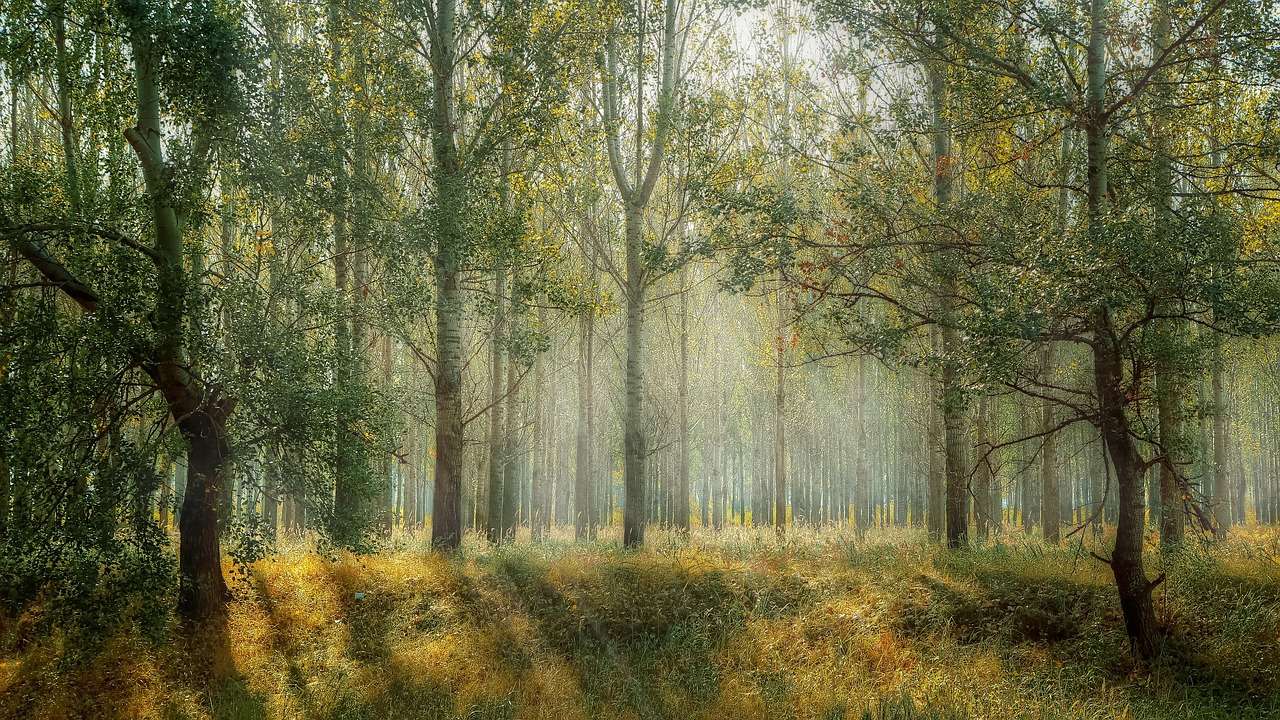Living off-grid is a lifestyle choice that many people are becoming increasingly interested in. But what is the social life like for those who choose to disconnect from the grid and live a more self-sufficient existence? In this article, I will explore the social implications of living off-grid and how it may impact relationships, community interactions, and overall wellbeing. From forming tight-knit communities to embracing a slower pace of life, the off-grid social scene offers a unique perspective on human connection and the importance of sustainable living.

Social Interaction
Living off-grid doesn’t necessarily mean being isolated from society. In fact, many off-grid communities thrive on strong social bonds and close-knit relationships. The absence of modern amenities such as electricity and internet can actually encourage more face-to-face interactions and foster a sense of community.
Community Bonds
One of the key aspects of off-grid living is the establishment of strong community bonds. In these communities, neighbors become more than just neighbors – they become friends and extended family. Shared experiences, challenges, and a common goal of self-sustainability often bring people together, creating a tight-knit social fabric. Whether it’s lending a helping hand with building a new structure or sharing a meal with neighbors, the sense of community is deeply ingrained in the off-grid lifestyle.
Shared Activities
Living off-grid opens up countless opportunities for shared activities that can strengthen both social and practical connections. From working on a community garden to constructing communal spaces, off-grid living encourages individuals to work together towards a common goal. These shared activities not only foster a sense of camaraderie but also help in building a sustainable off-grid infrastructure. Whether it’s gathering firewood, harvesting crops, or building shelters, these activities not only promote self-sufficiency but also provide opportunities for interaction and collaboration.
Support Systems
Living off-grid can come with its fair share of challenges, but the presence of a strong support system within the community can make all the difference. In off-grid communities, there is often a culture of mutual support, where individuals come together to help each other overcome difficulties. Whether it’s sharing resources during times of scarcity or providing emotional support during tough times, these support systems build resilience within the community and create a sense of belonging.
Offline versus Online
Living off-grid typically means having limited or no access to the internet. While this may seem like a drawback in today’s digitally interconnected world, it also presents an opportunity for alternative communication methods and more meaningful interpersonal connections.
Limited Internet Access
Without constant access to the internet, off-grid communities have to rely on more traditional forms of communication. Face-to-face interactions, phone calls, and even snail mail become the primary means of staying connected. While this may seem inconvenient to some, it actually allows for more intentional and focused conversations, strengthening the quality of social interactions.
Alternative Communication Methods
In the absence of internet access, off-grid communities often develop unique ways of communication. Whether it’s creating community notice boards, using two-way radios, or organizing regular community gatherings, these alternative methods foster a sense of connection and enable effective communication. These methods not only ensure that necessary information is shared within the community but also provide opportunities for socializing and building relationships.

Local Events and Gatherings
Living off-grid doesn’t mean missing out on the joys of community celebrations and gatherings. In fact, off-grid communities often have their own unique local events and traditions that foster a strong sense of belonging and cultural identity.
Festivals and Celebrations
Off-grid communities often come together to celebrate various festivals and special occasions. These celebrations can range from harvest festivals to seasonal gatherings, where individuals showcase their talents, share traditional dishes, and come together in joyful festivities. These events not only provide opportunities for social interaction but also serve as a reminder of the rich cultural heritage within the community.
Weekly Markets
Weekly markets play a vital role in the social life of off-grid communities. These vibrant gatherings allow community members to trade goods and services, catch up with friends and neighbors, and simply enjoy the lively atmosphere. Weekly markets also serve as a hub of social interaction, where individuals can share stories, exchange ideas, and support local businesses.
Community Meetings
Regular community meetings serve as a platform for addressing concerns, making decisions, and fostering a sense of unity. These meetings provide a space for open dialogue, allowing community members to voice their opinions, share ideas, and work collectively towards improving their living conditions. Community meetings also provide opportunities for socializing, fostering a sense of belonging, and building relationships among community members.
Outdoor Activities
Living off-grid offers the opportunity to immerse oneself in nature, and outdoor activities become an integral part of daily life. These activities not only promote physical well-being but also foster social interaction and a sense of adventure.
Hiking and Camping
One of the main benefits of off-grid living is the proximity to nature and the opportunities it presents for outdoor activities. Hiking and camping become popular pastimes, allowing individuals to explore the natural beauty around them, bond with fellow outdoor enthusiasts, and discover hidden trails and scenic spots. These activities provide an avenue for socializing and building friendships based on a shared love for the great outdoors.
Fishing and Hunting
For many off-grid communities, fishing and hunting are not only recreational activities but also essential for sustenance. Engaging in these activities often involves working together as a team, sharing skills and knowledge, and ultimately fostering a sense of camaraderie. The shared experience of preparing and enjoying a meal from a fresh catch or a successful hunt strengthens social bonds and creates lasting memories.
Gardening and Farming
Growing one’s own food is a cornerstone of off-grid living, and gardening and farming go hand in hand with this lifestyle. Whether it’s tending to community gardens or cultivating individual plots, these activities provide opportunities for collaboration, knowledge-sharing, and social interaction. From swapping tips on organic farming methods to working together during harvest season, gardening and farming create a sense of unity and cooperation within the off-grid community.

Alternative Entertainment
Living off-grid often means finding alternative sources of entertainment that don’t rely on modern technology. While it may seem challenging at first, off-grid communities have come up with creative ways to entertain themselves and foster social connections.
Board Games and Card Games
Board games and card games have been a popular form of entertainment for centuries, and these traditional games continue to bring people together in off-grid communities. From chess to poker to simple card games, these activities provide opportunities for friendly competition, conversation, and laughter. Whether it’s gathering around a table in the evening or during community events, these games offer a chance to build relationships and create lasting memories.
Musical Performances
Music has a universal way of connecting people, and off-grid communities often have talented musicians and performers within their midst. Musical performances become a centerpiece of social gatherings and events, bringing community members together to enjoy live music, sing along, and dance. Whether it’s a casual jam session around a campfire or a more organized community concert, music creates a sense of unity and joy within the off-grid community.
Storytelling and Poetry
The art of storytelling and poetry has been a fundamental part of human culture for centuries, and off-grid communities keep these traditions alive. Storytelling sessions allow community members to share their experiences, life lessons, and cultural heritage, while poetry readings provide a platform for artistic expression. These activities not only entertain and inspire but also foster a sense of connection and understanding among community members.
Bartering and Trade
Living off-grid often means embracing a more self-sufficient and sustainable lifestyle, which includes bartering and trading goods and services within the community. These practices not only foster economic resilience but also strengthen social bonds and create a sense of interdependence.
Local Economies
Off-grid communities often develop their own local economies based on bartering and trading goods and services. Whether it’s exchanging surplus vegetables from a garden for handmade crafts or trading carpentry skills for homemade bread, these local economies thrive on trust, cooperation, and mutual benefit. By engaging in these economic exchanges, community members not only meet their needs but also forge stronger social connections.
Sharing Skills and Resources
Living off-grid necessitates a diverse range of skills, and community members often share their expertise with one another. From teaching carpentry to sharing knowledge of herbal medicine, individuals within the community contribute their skills and resources to the collective well-being. This culture of skill-sharing not only promotes self-sufficiency but also strengthens social bonds and fosters a sense of collaboration and interdependence.
Volunteer Work
Off-grid communities often prioritize giving back to the larger society and engaging in volunteer work that benefits both the community and the environment. These initiatives not only create a sense of purpose and fulfillment but also offer opportunities for social interaction and personal growth.
Community Projects
Community projects are at the heart of off-grid living and provide numerous opportunities for volunteer work. From building sustainable infrastructure and renewable energy systems to organizing educational programs, these initiatives bring community members together in a shared effort to improve their living conditions. Working side-by-side towards a common goal strengthens social bonds, builds trust, and instills a sense of civic responsibility within the off-grid community.
Environmental Conservation
Living off-grid often goes hand in hand with a deep appreciation for the natural environment. Volunteer work focused on environmental conservation allows community members to actively contribute to the preservation of local ecosystems, whether it’s cleaning up local waterways, planting trees, or participating in wildlife monitoring programs. These initiatives not only foster a sense of connection with nature but also create opportunities for social interaction and a shared commitment to sustainable living.
Social Services
Off-grid communities often extend their support beyond their immediate boundaries and engage in volunteer work that benefits neighboring communities or marginalized groups. Whether it’s providing assistance to elderly residents, organizing food drives, or offering educational programs for underserved populations, these social service initiatives foster a sense of empathy, compassion, and societal responsibility within the off-grid community. Engaging in these projects together strengthens social bonds and creates a collective sense of purpose and fulfillment.
Supportive Networks
Living off-grid can come with its own set of challenges, and having a strong support system is crucial for overall well-being and resilience. Off-grid communities often develop supportive networks that cater to various needs and provide a sense of belonging.
Helping Hands
Within off-grid communities, there is often a culture of mutual assistance. Whether it’s helping with construction projects, lending tools, or providing childcare, community members readily offer support to one another. These acts of kindness not only ensure that everyone’s needs are met but also create a sense of interdependence, trust, and solidarity within the community.
Sharing Knowledge and Advice
Off-grid living requires a diverse set of skills and knowledge, and the sharing of expertise is essential for the collective well-being. Community members often organize skill-sharing workshops, where individuals can teach others their areas of expertise, whether it’s gardening, animal husbandry, or renewable energy systems. This transfer of knowledge not only promotes self-sufficiency but also strengthens social connections and empowers community members to become more resilient.
Emotional Support
Living off-grid can sometimes be challenging, especially during times of hardship or unexpected events. Emotional support within the community becomes crucial during these times, as community members lean on each other for comfort, guidance, and understanding. Whether it’s a listening ear, a shoulder to lean on, or a helping hand, the emotional support within off-grid communities fosters resilience, nurtures mental well-being, and cultivates a sense of belonging.
Social Barriers
While off-grid living offers many unique social benefits, it also presents certain challenges and barriers to social interaction and diversity. These barriers can include geographical isolation, limited diversity, and occasional conflicts within the community.
Geographical Isolation
Living off-grid often means being physically removed from urban centers and populated areas. While this isolation can provide peace and tranquility, it can also mean limited opportunities for social interaction outside the immediate community. Traveling long distances to access social amenities, such as healthcare facilities or entertainment venues, can be a challenge. However, off-grid communities often find creative ways to address this barrier, such as organizing regular community gatherings or creating social networks with neighboring off-grid communities.
Limited Diversity
Off-grid communities can sometimes lack diversity in terms of demographics, cultural backgrounds, and perspectives. Homogeneity within the community can limit exposure to different ideas, cultures, and experiences, potentially hindering personal growth and understanding. However, off-grid communities that value inclusivity and actively seek diversity can actively work towards overcoming this barrier. By fostering an open and welcoming environment and actively engaging with neighboring communities, off-grid communities can create opportunities for cross-cultural interaction and learning.
Conflicts and Disputes
Living in close proximity and working together towards common goals can sometimes lead to conflicts and disputes within off-grid communities. Disagreements over resource allocation, decision-making, or personal differences can strain relationships and create tension. However, off-grid communities often develop conflict resolution mechanisms and emphasize effective communication and compromise. By addressing conflicts directly, fostering a culture of respect and active listening, and promoting open dialogue, off-grid communities can overcome these barriers and maintain harmonious social relationships.
Conclusion
Living off-grid offers a unique social experience that revolves around community bonds, shared activities, and support systems. While limited internet access may present communication challenges, off-grid communities find alternative methods to stay connected and foster meaningful relationships. Local events, outdoor activities, alternative entertainment, and bartering contribute to the vibrant social life within these communities. Volunteer work and supportive networks further strengthen social bonds and provide opportunities for personal growth. However, off-grid living also comes with certain barriers such as geographical isolation, limited diversity, and conflicts. By actively addressing these challenges and promoting inclusivity and effective communication, off-grid communities can create thriving social environments that enhance the overall well-being of their members.




